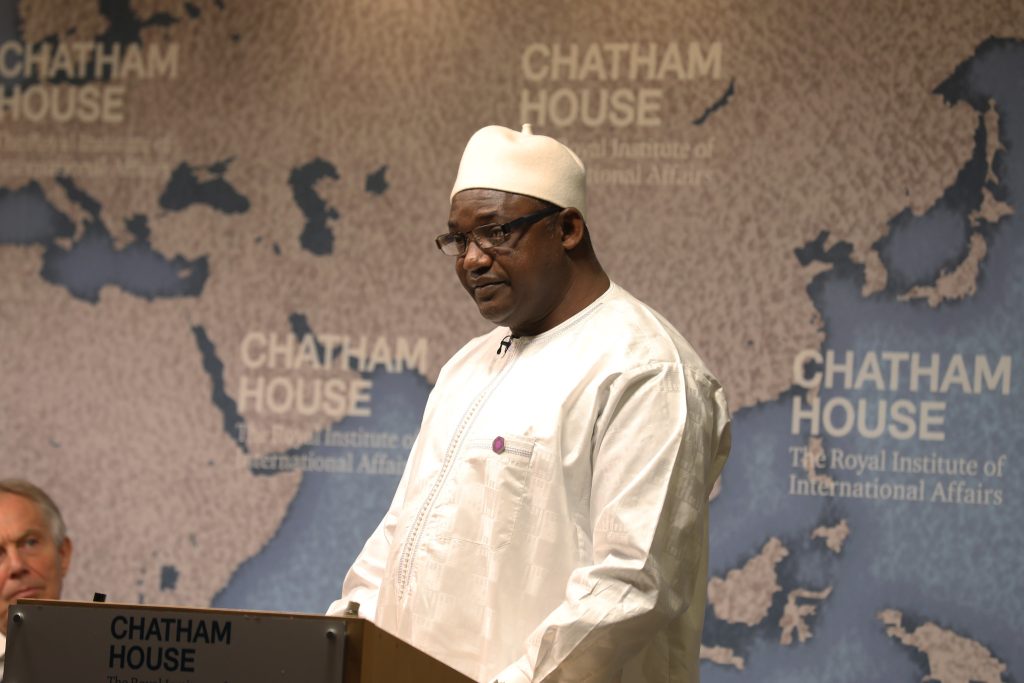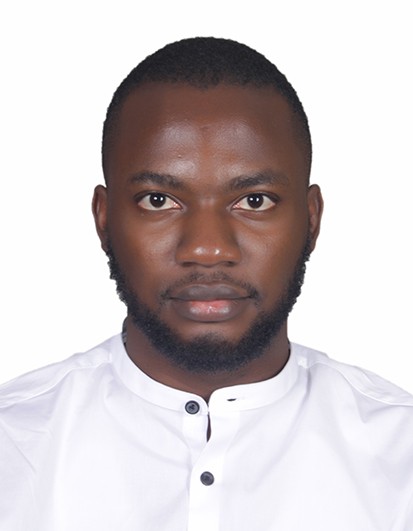Elections in The Gambia: A Litmus Test of Democratic Values
The Gambia’s fast-approaching presidential election is a tight race. It remains overshadowed by speculation about the possible return of former President Yahya Jammeh, who went into exile after refusing to accept defeat in the last national ballot. Can Jammeh stage a comeback and what does this key election mean for the West African country’s democratic aspirations?
For two decades, Gambian opposition figure Ousainou Darboe and founder of the United Democratic Party (UDP), was a thorn in the flesh of Yahaya Jammeh, who ruled for 22 years until 2016. He was knocked out of the top job by Adama Barrow, a businessman whose sole previous political highlight was losing a 2007 parliamentary election.
The political upstart had clinched the ticket of the UDP-led coalition after Darboe was detained for participating in street protests. To the citizens of the tiny West African state, the new president ushered in hope for a new era. To his political partners, he was only a transitional leader, warming the seat for the immensely popular Darboe.
Five years has seen major political shifts, including three vice-presidents and a failed constitutional reform process which fell victim to indivduals securing their grip on power. After falling out with Darboe, the president exited the UDP and is now pursuing re-election on the platform of his freshly minted party, the National People’s Party (NPP). Serial contender Darboe who served in the cabinet as one of those deputies and as foreign minister is once again the UDP’s candidate.
The Gambia national polls, scheduled for December 4, are predicted to be a close affair between Barrow and his former benefactor. The opposition, which holds a parliamentary majority and has a solid grassroots representation, is confident that it can engineer a second presidential upset in six years. Despite concerns about his age, Darboe, 73, is hoping to emulate fellow serial contenders like Nigeria’s Muhammadu Buhari, Ghana’s Nana Akufo-Addo, and Guinea’s Condé in securing power after so many attempts.
Human rights looming large
Barrow’s legacy of trying to consolidate democratic values depends on the poll outcome. His presidency established the Truth, Reconciliation and Reparation Commission (TRRC) to foster national healing in the aftermath of the human rights violations of the previous administration. While it is unlikely that its public revelations will impact the elections, its findings – whenever they are submitted – could become politicized afterwards.
Already Essa Faal, the commission’s lead prosecutor, has resigned to run for the presidency too, leaving the TRRC’s potential recommendations open to criticism. It remains unclear what party’s platform Faal, a former diplomat to the UN and counsel to Charles Taylor, is contesting on.
Security sector reforms were promised too. Throughout Jammeh’s regime, security personnel were arbitrarily sacked, replaced or promoted based on his whims or the ethnicity of the officers involved, and loyalty was prioritized over experience and competence. In the interregnum, the current administration has resorted to using troops deployed by the Economic Community of West African States (ECOWAS) since 2017.
According to the BTI Transformation Index’s 2020 Gambia Country Report there have been isolated instances of both this peacekeeping force and the country’s security forces being heavy-handed on citizens. Still, the presence of the ECOWAS troops during the elections could come in handy should Barrow try to follow in the footsteps of Jammeh and sit tight in the event of a loss.
The BTI report also underscored the country’s firmly entrenched democratic trends: “The democratic institutions of the Gambia are widely considered legitimate, even by those individuals or groups who might disagree with specific decisions or policies. Before Jammeh’s rule, democratic institutions had been deep-rooted in Gambian society.”
But these trends have been thrown into question when Barrow’s NPP announced a controversial pact with the Alliance for Patriotic Reorientation and Construction (APRC), Jammeh’s old party. This has sparked speculation that the former ruling party could get a role in the next government and an amnesty deal for its exiled leader ahead of his supposed return as perks. Human rights groups in the Gambia have warned of a possible return of former President Yahya Jammeh, who stands accused of human rights violations and killings of political opponents during his 22-year reign.
But both sides ought to know there are no guarantees in politics, says Hamid Adiamoh, editor-in-Chief of NewDay newspaper. “Sometimes people think that they have control over an agreement and then you shake hands with the devil and then eventually you start to realize that the devil has more power than you thought he did,” he says in an interview with the author.
Government insiders, however, doubt the likelihood of a presidential pardon. “He [Jammeh]’s alleged to have killed quite a number of West Africans and American citizens, Gambian Americans,” says a source at the presidency on condition of anonymity. “Jammeh’s going into exile five years ago was an international thing. I think it’s highly improbable that President Barrow will have as much power to grant Yahaya Jammeh amnesty or to stop his prosecution.”
Ethnic allegiances influence outcome
From all indications, the polls will be free and fair, but ethnic allegiances will continue to play a role in deciding the winners. In The Gambia, personality politics hold sway, not ideology politics. Darboe is Mandinka, an ethnicity which accounts for a third of the population, while the president is Fula, and has been accused of serving the interests of his kinsmen. His predecessor was a Jola who once said he would put the Mandinkas “where even a fly can’t see them,” a statement that is believed to have robbed him of their support in the 2016 polls.
Barrow’s marriage of convenience with the APRC, seen as the political home of the Jolas, seems to be a strategy to boost his numbers too.
Five years ago, becoming president was a case of being in the right place at the right time – he was merely a transitional candidate to knock Jammeh off his perch, explains the presidential source. “But of course, this is politics. This is power. The president believes that it is essential for him to take the next step beyond just being the transitional leader.”
For the citizens of The Gambia, the polls could spell either a new lease of life for a disgraced dictator or a happily-ever-after story for yet another West African gerontocrat. More importantly for the majority would be an uneventful election to ensure the country’s first smooth political transition since its 1965 independence from the British.

